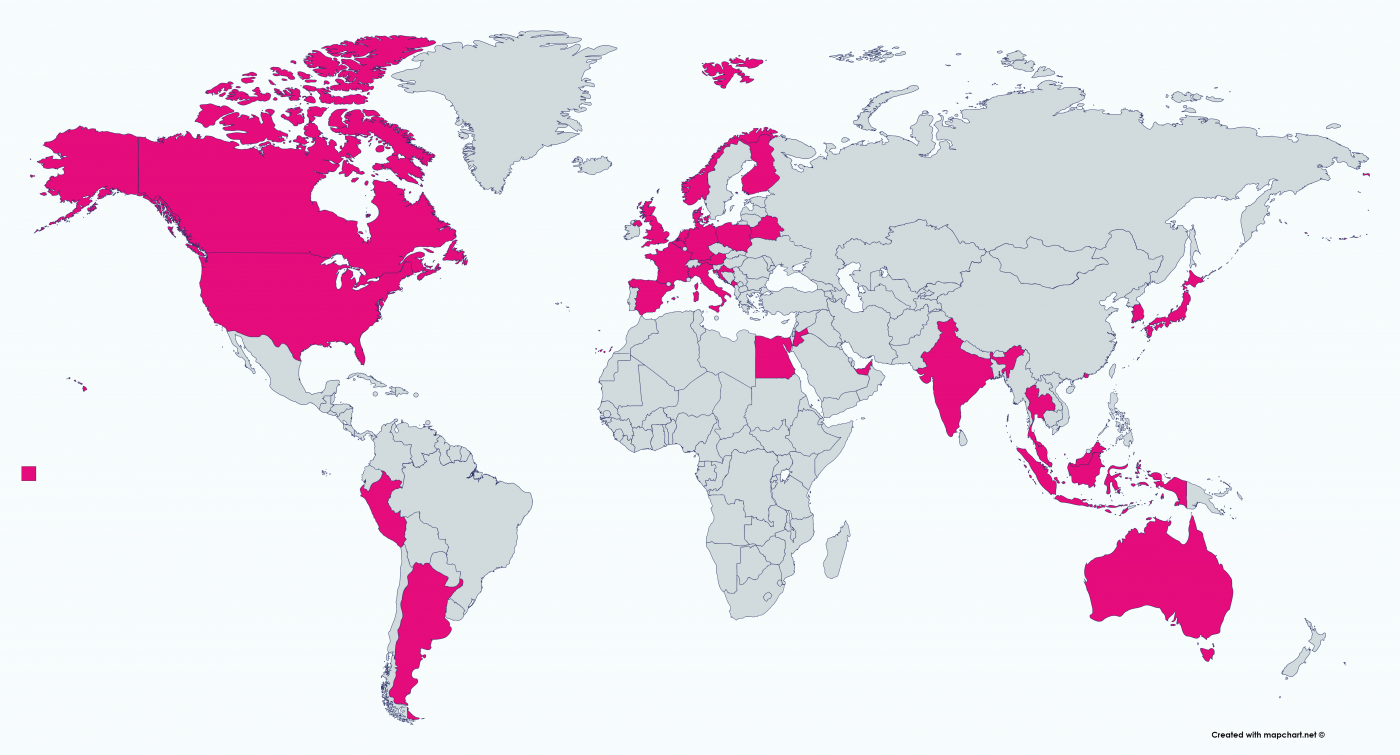It has now been almost four months since the entire Lloyd's Register Foundation staff started working remotely following the UK's lockdown commencement on 23 March. The period has certainly been an experience for the HEC team and one that has certainly highlighted our resilience and pragmatism. As you can imagine, despite the Centre's extensive contingency planning, no such plan existed for a global pandemic. Fortunately, whether by a sheer stroke of luck or just plain coincidence, the Centre had been preparing to adapt its activities to online platforms since January.
Prior to the outbreak of COVID-19, the Centre's home at 71 Fenchurch Street was in the process of undergoing a major refurbishment. As a result, the Centre's reference library, exhibition area and historic rooms within the Collcutt building would be closed to the public. This meant the Centre's educational resources and outreach events at 71 Fenchurch Street would need to be transformed from the physical world to the digital world. In order to continue engaging with the public, the team would need to produce more digital content across multiple platforms. So, after four months, we thought it would be worth updating you with an overview of our progress.
Online Exhibitions & Stories
The beginning of April saw the release of our new Online Exhibitions & Stories portal, which was designed to allow the team to continue educating and engaging with the public about Lloyd's Register's fascinating history and its cultural impact. On launch day, the portal saw 'The Lloyd's Register Origin Story' exhibition and 'Yards, Yellow Cards & Shipyards' story published. In the following months, a further three exhibitions and stories were curated.
Since launch, the portal has been viewed in 33 countries worldwide, including in Belarus, South Korea & Argentina.

Webinars
As the Centre's planned workshops had to be cancelled to accommodate Fenchurch Street's refurbishment plan, the team had been planning remote webinars for some time. The webinar series kicked off in late April, with HEC's Outreach & Education Coordinator Charlotte Ward hosting a webinar on Edward Lloyd's Coffee House. The monthly programme has since seen HEC Archivist Max Wilson deliver a talk, entitled 'That's A1!' on the importance of surveying a ship and the early role Lloyd's Register Surveyors played in ensuring ships were safe and seaworthy. Followed by Applied Research & Outreach Manager Louise Sanger's deep dive into HEC's archaeological resources in her Shoreline webinar.
Each webinar was recorded live, with a 15 minute question and answer session following the webinar, ensuring the team could speak directly with viewers. In order to maximise the reach of each webinar, following each session the complete webinar was uploaded to our YouTube channel. This on-demand aspect of our webinar series has seen a total watch time of 40 hours of content on our YouTube Channel since lockdown - the highest watch period in the channel's history.
Ship Plan and Survey Report Collection Digitisation
The Centre's major digitisation project has continued to progress despite COVID-19. Thanks to expert logistical planning from our digitisation partner Max Communications, capturing and cataloguing of the Ship Plan and Survey Report Collection has continued. The current workflow for digitisation meant that a number of processes, such as quality assurance, can be completed remotely; as the Max Communications team use the digitised image of a document rather than the physical document itself.
The Centre's digitisation team have also been hard at work testing an importer for the project's digitised imagery and data. This should be ready soon following extensive testing.
Existing Grants
After several lockdown restrictions came into place across the globe, the team have been quick to liaise with existing grantholders to ensure we can provide necessary resources and support. For the Centre's UK-based grants, the imposing of travel restrictions impacted a number of grantholders. For example, the Foundation-funded organisation, CITiZAN moved its physical Low Tide Trails to social media and introduced a remote volunteer training programme, called Armchair Archaeology, replacing its localised training schemes.
Welcome to today's virtual #LowTideTrail. Flamborough Head juts into the North Sea on the Yorkshire coast. The area has seen much defensive activity over 4500 years. We'll also see some #archaeology of lifesaving on our way. Let's take a look! @Active_Coast #HumberDiscovery pic.twitter.com/a4PNjlvvMF
— CITiZAN (@CITiZAN1) May 1, 2020
Podcasts
Finally, the Centre launched the Washed Ashore Podcast in late April; aiming to discuss wider historical subjects and our collection's relationships with these topics. Have you ever wanted to find out about the origins of popular maritime terms? How about maritime history and sea shanties? With discussions about maritime language, digitisation, sea shanties and Muppet Treasure Island (yes, seriously...), the podcast has proved to be a hit even in its infancy. You can listen to every episode of the Washed Ashore podcast on Podbean or YouTube.
Thanks to the efforts of the HEC team, the aforementioned activities have seen the Centre and its grantholders continue to fulfil its educational mission of furthering public education and outreach in marine and engineering science and history. This point has been reinforced by your feedback and impact data the Centre has been gathering, that has seen an increase in views, enquiries, social media followers and overall engagement with HEC - so a special thank you to each and every one of you that has supported the Centre throughout this challenging period. As we look to the future, the team are continuing to monitor the COVID-19 pandemic and are preparing to launch new initiatives to enhance our collection's educational reach and impact. So stay safe and stay tuned!

